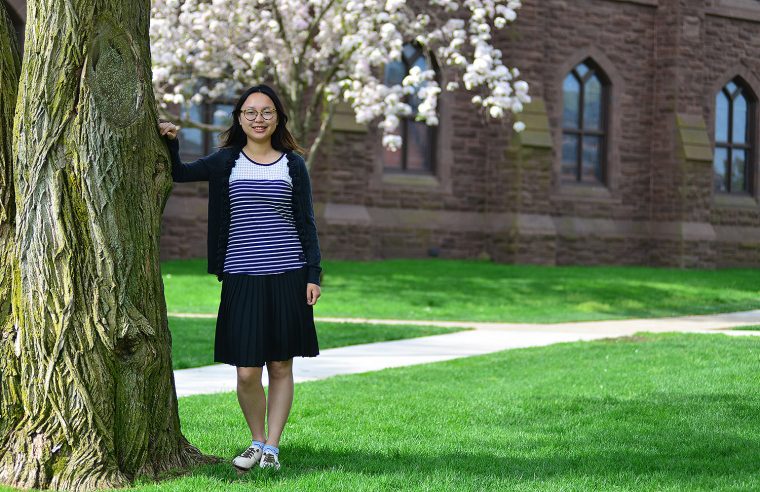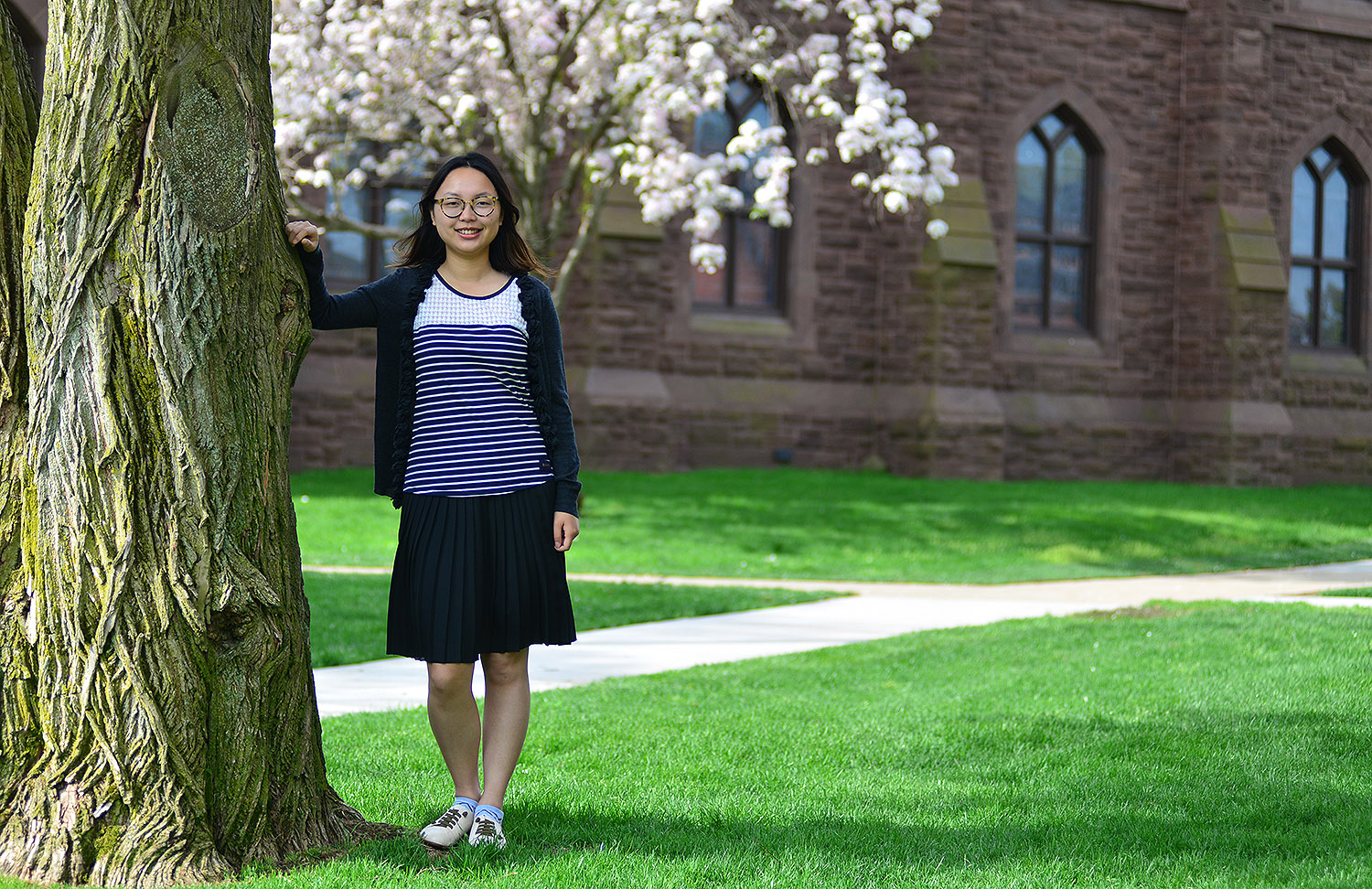Investment Associate Zhao on the Art and Science of Portfolio Management


Doris Zhao, an investment associate with Wesleyan’s Investments Office, joined Chief Investment Officer Anne Martin’s team in 2013, after graduating from Yale. Since then, she has completed all three levels of the prestigious Chartered Financial Analyst credential. “My role here at Wesleyan is to help manage the portfolio through monitoring our current managers and selecting new managers,” she says. When we approached her for this Q&A, we discovered that scheduling was an issue: Zhao’s position sends her on frequent travel across the country and internationally, but on a sunny December afternoon she was on campus and spoke with us about her career, her background, and her interests beyond financial matters.
Q: How much time do you spend traveling?
A: When I first started, not as much, because it’s important to build foundational understanding before you go out. Now I travel almost every week, often for multiple days. In the extreme case, like November, I was only at home for one full workday in the month. And I just came back from Toronto yesterday—so you caught me in the office on my one day this week.
Q: With that schedule, It would be hard to have pets.
A: Yes. I don’t even have houseplants.
Q: What brought you to Wesleyan?
A: I was an Ethics, Politics, and Economics major (a multidisciplinary program similar to Wesleyan’s College of Social Studies) at Yale. I concentrated on international development, and my research focused on cash transfer programs as a method of alleviating long-term poverty in developing countries.
In my junior year I did an internship in investment banking and thought that would be my path, but in my senior year, I ended up working as a research assistant for a vice president of China’s sovereign wealth fund. We researched how to build and manage a good private equity program. That served as my gateway to portfolio management, and I started looking for opportunities in that field. Anne was recruiting for an analyst at the time. We connected and the rest was history.
Q: And now you help Wesleyan invest its money well?
A: We certainly hope so—fundamentally, we want to partner up with managers who have a strong sense of fiduciary responsibility and a high level of integrity. Given Wesleyan’s culture and mission, we also value partners who keep an eye out for environmental, social, and governance considerations. We try to select folks who will invest our money not just in a smart, but also socially responsible manner.
Q: What do you look for when you visit them?
A: Evaluating potential managers is both an art and a science: How do we pick the best investor—and what is the “best”? There are more objective measures, like prior performance, as well as a differentiated investment strategy.
But a large part of what we do is very subjective. You have to go to a meeting and assess what kind of person they are. You have to see the culture of the office and dynamics in play: Do people like working for them? Are they building a long-term organization; are they promoting the right people? It’s not even about the current generation of very capable people—but are they building a firm that will last?
Q: How did you learn to do this?
A: Anne, our chief investment officer, likes to say that “investing is really an apprenticeship business.” The most valuable asset is your judgment, and that comes from knowledge and experience. Every deal has an element of imperfection, so if you are looking for things to be perfect, you’re never going to invest in anything. What can you accept, and what can you not, and what can you work around? Using your judgment to balance conflicting factors while building conviction is key here.
Q: What do you like best about your career?
A: The broad lens. In the past few months, we have looked at everyone from stock pickers in South Africa to tech start-ups in China. We interact with investors, innovators, and company builders from all industries, some of whom are the smartest thinkers in their fields. It’s a career that will very quickly broaden your worldview.
Q: What do you do in your free time?
A: It’s hard to maintain a regular activity schedule, so a lot of my free time goes into reading. Science fiction and fantasy are my favorite genres—or I read nonfiction relevant to my work.
For example, a lot of our venture capital managers are excited about the possibilities of blockchain technology, which underpin cryptocurrencies like bitcoin. The transformational potential of this technology to provide the foundation of an alternative internet is exciting, and given this interest from our managers, is something I have been trying to get up to speed on.
Q: And your favorite recent fiction?
A: It’s a translated trilogy. The first book is The Three-Body Problem, a New York Times best seller by Cixin Liu, a Chinese author. Chinese science fiction is rare, but Liu actually won a Hugo Award. It’s one of the most surprising books I’ve read.
Q: What about your favorite music?
A: Well, I like diversity, anything from pop to European symphonic rock sounds good to me. I also like to listen to a lot of music in other languages—Spanish, French, Japanese, Korean, and Chinese.
Q: How do you spend vacation time?
A: I travel a lot as well. Last Thanksgiving, I went to Taiwan with a group of friends from college and high school. We try to go on one big international vacation a year to relax and reconnect.
Q: Do you have advice for anyone interested in this field?
A: Our office has a summer internship program for Wesleyan students. Interns get a firsthand view of what we do and start off with a crash course in all the asset classes we invest in, as well as the basics of financial analysis. It can be quite overwhelming in the beginning, but great exposure to anyone interested in investing. We welcome students of all years and majors with strong intellectual curiosity, analytical abilities, and a willingness to work hard.

